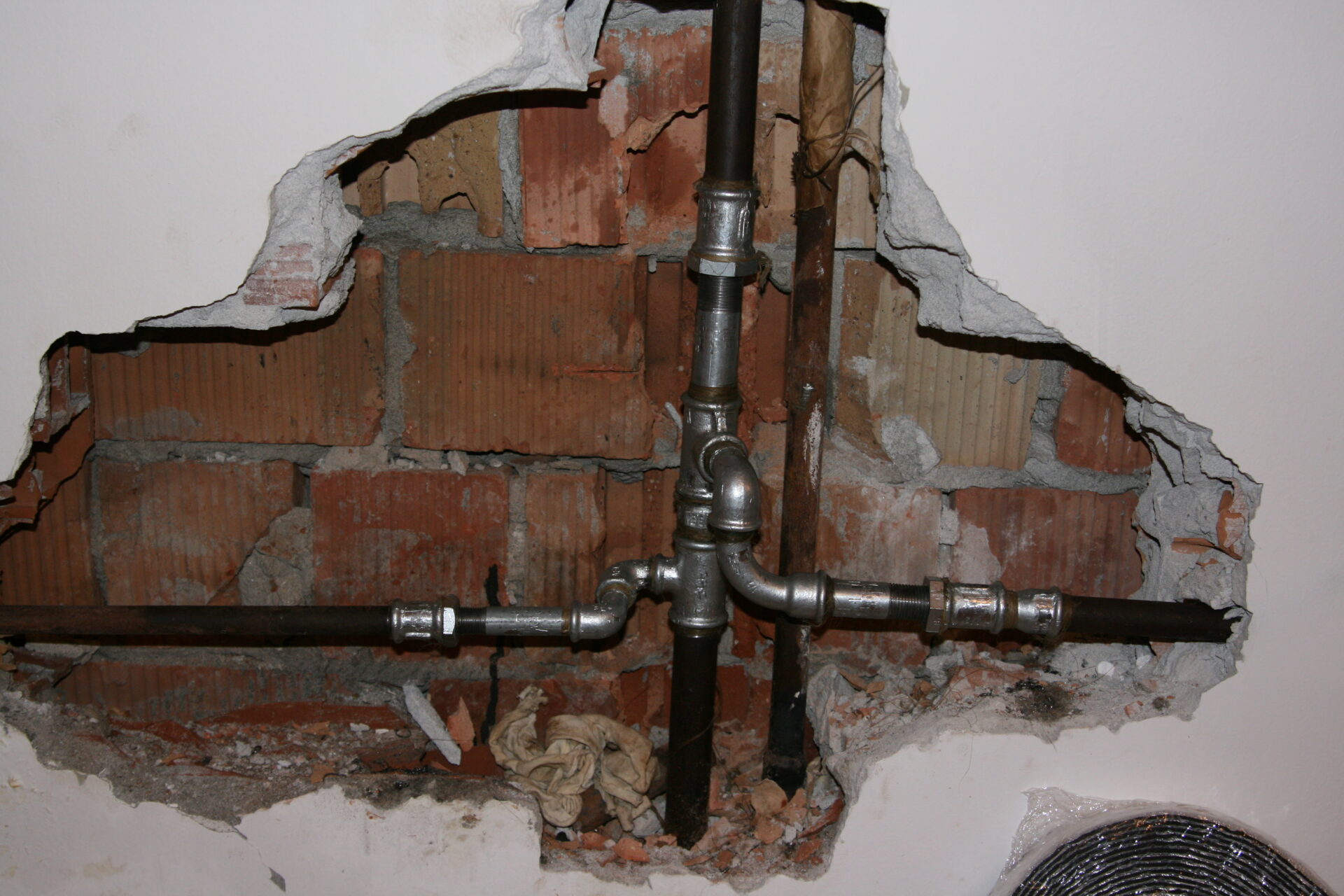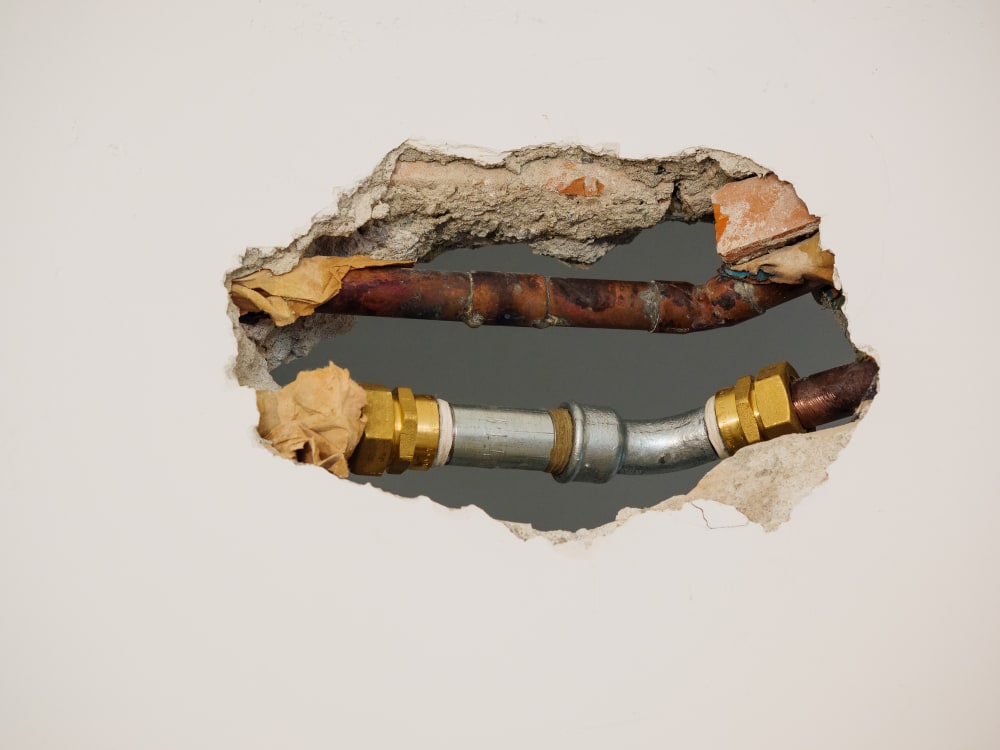Strategic Ways to Address Plumbing Issues in Older Homes
Strategic Ways to Address Plumbing Issues in Older Homes
Blog Article
We've stumbled on this post relating to Plumbing Issues in Older Properties and How to Fix Them down the page on the web and reckoned it made sense to share it with you on this site.

Older homes usually come with appeal, personality, and background, however they can also bring a host of pipes problems. Whether you're managing aging pipes, low water stress, or leakages, knowing how to attend to these usual problems is vital to preserving a safe and useful home. In this overview, we'll check out the typical plumbing difficulties faced by older homes and give sensible remedies to keep your pipes in leading shape.
Understanding Usual Pipes Problems
Aging Pipes
One of the most common concerns in older homes is maturing pipelines. Depending upon the period in which your home was constructed, the pipelines could be made from materials that have actually worn away with time, such as galvanized steel, cast iron, or perhaps lead. These materials can wear away, become brittle, or establish leakages, resulting in water damages and prospective health hazards.
Low Tide Pressure
If you're experiencing low tide pressure, maybe because of natural resources, corrosion inside the pipes, or old components that are no longer working efficiently. This can be a major aggravation, particularly in locations like showers and sinks.
Leaking Pipes
Leaks are another frequent problem in older homes, typically brought on by rusty or damaged pipelines. Also tiny leakages can result in significant water damages, mold and mildew development, and increased water expenses if not addressed quickly.
Out-of-date Components
Outdated plumbing fixtures such as taps, commodes, and showerheads not just look old however might likewise be less effective, prone to leakages, or incompatible with modern-day plumbing criteria.
Pipeline Rust
Rust is an usual trouble in older pipes, particularly those made from galvanized steel or cast iron. Rusty pipelines can limit water circulation, cause discoloration, and eventually lead to leakages or pipe ruptureds.
Evaluating the Condition of Your Plumbing
Inspecting Visible Pipelines
Start by checking any visible pipes in your house, such as those in basements, crawl spaces, or under sinks. Search for indications of rust, leaks, or rust, which can indicate underlying concerns.
Looking for Leakages
Check for leakages by inspecting locations around faucets, commodes, and under sinks. You can likewise check your water meter before and after a period of no water make use of to discover surprise leaks.
Water Quality Testing
Older pipelines can affect the high quality of your water. Conduct a water quality test to check for impurities such as lead, rust, or other impurities that might be introduced by maturing pipelines.
Solutions for Common Plumbing Concerns
Changing Aging Pipelines
If your home has old, deteriorating pipes, take into consideration changing them with modern materials like copper or PEX. This can be a substantial investment, but it will certainly avoid future issues and enhance the safety and security and dependability of your plumbing system.
Taking Care Of Low Water Stress
To repair low water stress, beginning by cleaning or changing old components and getting rid of mineral accumulation in the pipelines. If the problem persists, it might be required to replace areas of rusty pipes.
Repairing and Replacing Dripping Pipelines
For small leaks, you can make use of pipeline clamps or epoxy putty as a short-lived solution. However, it's finest to change leaking pipes totally to stay clear of further damage.
Upgrading Components
Upgrading old fixtures to modern, water-efficient models can improve your home's plumbing performance and minimize water consumption. Try to find fixtures with the WaterSense tag for the best effectiveness.
Dealing with Pipeline Corrosion
If your pipelines are rusted, changing them with corrosion-resistant products like copper, PVC, or PEX is the best service. Normal evaluations and water quality upkeep can aid avoid better deterioration.
When to Call an Expert
While some plumbing problems can be taken care of with DIY services, there are times when it's ideal to call in a specialist. If you're taking care of significant leaks, substantial corrosion, or are uncertain regarding the condition of your pipelines, a qualified plumber can supply expert analysis and repair.
Preventive Upkeep Tips
Normal Inspections
Frequently evaluate your plumbing system for indications of wear and tear. Capturing concerns early can avoid expensive repair services down the line.
Water Pressure Guideline
Ensure your water stress is within the recommended array to stay clear of worrying your pipelines and fixtures. A plumbing can mount a pressure regulator if required.
Water Quality Maintenance
Install water filters or conditioners if your water quality is poor. This can shield your pipelines and fixtures from damages triggered by tough water or impurities.
Aggressive Pipeline Substitute
If your home has older pipes, consider positive substitute prior to major concerns develop. This can conserve you from emergency repair work and water damage.
Final thought
Handling plumbing concerns in older homes needs a mix of watchfulness, preventative maintenance, and timely upgrades. By comprehending the usual difficulties and understanding when to seek expert aid, you can ensure your plumbing system continues to be useful and trusted for many years to find.
Common Plumbing Issues in Older Homes
Pipe corrosion
Pipe corrosion is a common plumbing issue in older homes. Several factors can cause pipes to corrode:
Water: Ironically, water is the number one cause of pipe corrosion. When water seeps into cracks in pipes, it can cause the metal to rust and break down, leading to leaks or even burst pipes.
Oxygen: Oxygen is another significant culprit in pipe corrosion. When oxygen interacts with water, it can cause the metal to oxidize and weaken.
Chemicals: Chemicals such as chlorine and fluoride can also contribute to pipe corrosion. These chemicals can react with the metal in pipes, causing them to break down over time.
Leaky pipes
Pipes that leak is one of the most common plumbing issues plaguing residents of older houses. While a small leak may not be a problem initially, it can lead to significant problems if left unaddressed. In addition, water damage can be very costly to repair and may cause damage to electric fixtures, promote mold growth and cause many other issues.
Worn-out fixtures
Older homes often have worn-out fixtures which may need replacement. Over time, the finishes on fixtures can wear down, exposing the underlying metal to corrosion. This can cause fixtures to leak or even break completely. It s best to have a professional plumbing contractor regularly inspect the fixtures in older homes and replaces them if necessary.
Faulty water heaters
A leaky water heater can cause severe damage to the home as it can be both a flood and fire hazard. Call a plumber immediately if it appears that the water heater might be leaking.
If the heater isn t working correctly, it could be because the pilot has gone out. The pilot light going out may indicate gas supply issues or leaks. It is also worth checking the thermostat to see if it needs to be adjusted.
If the water heater is making strange noises, it could be due to sediment buildup in the tank. Sediment can interfere with the heating elements and cause them to overheat. Overheating can damage the tank and shorten the lifespan of the water heater.
https://www.norfleetfamilyplumbing.com/blog/common-plumbing-issues-in-older-homes

As an enthusiastic person who reads on Plumbing Problems In Old Homes, I thought sharing that excerpt was smart. For those who liked our page please do not forget to share it. I praise you for your time. Kindly come by our site back soon.
Maintenance Sign-Up Report this page